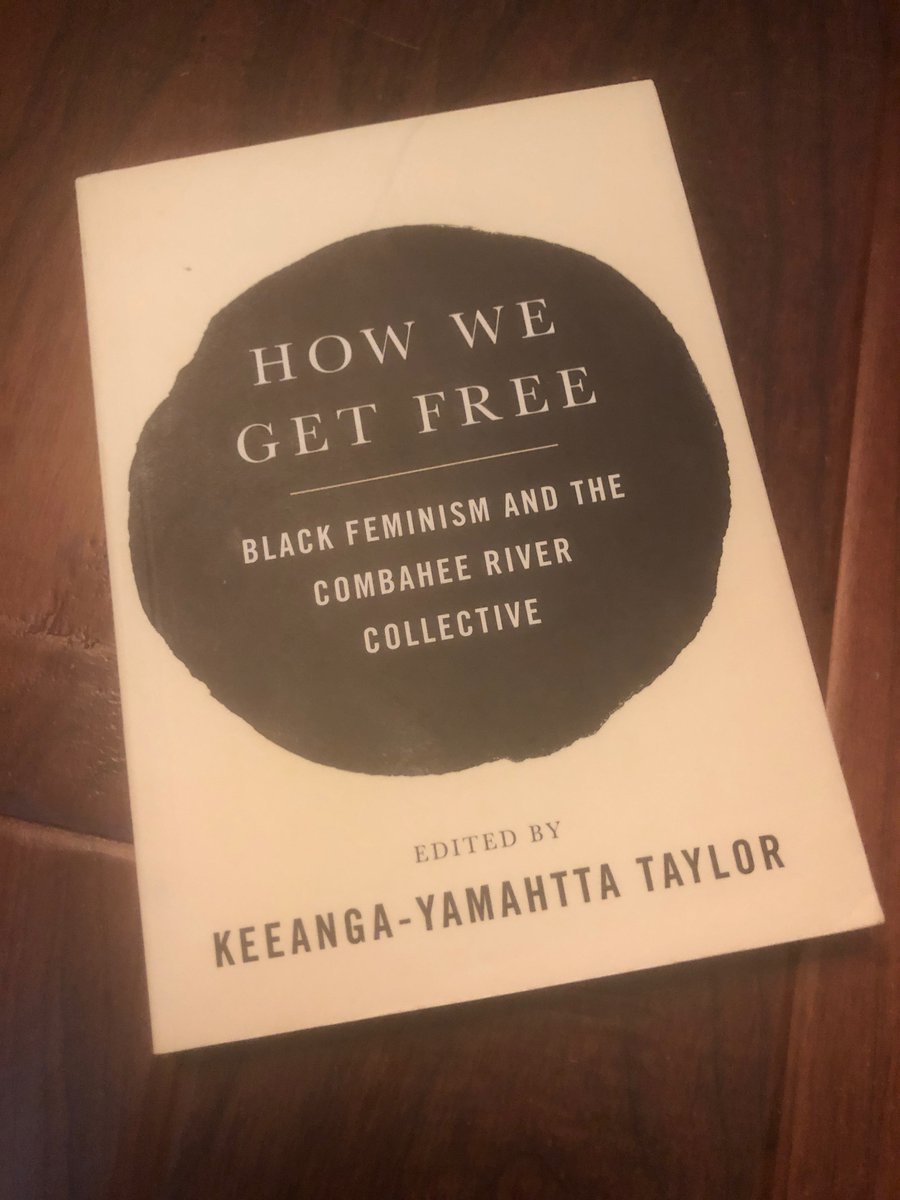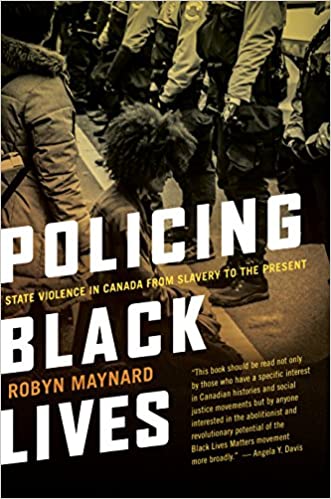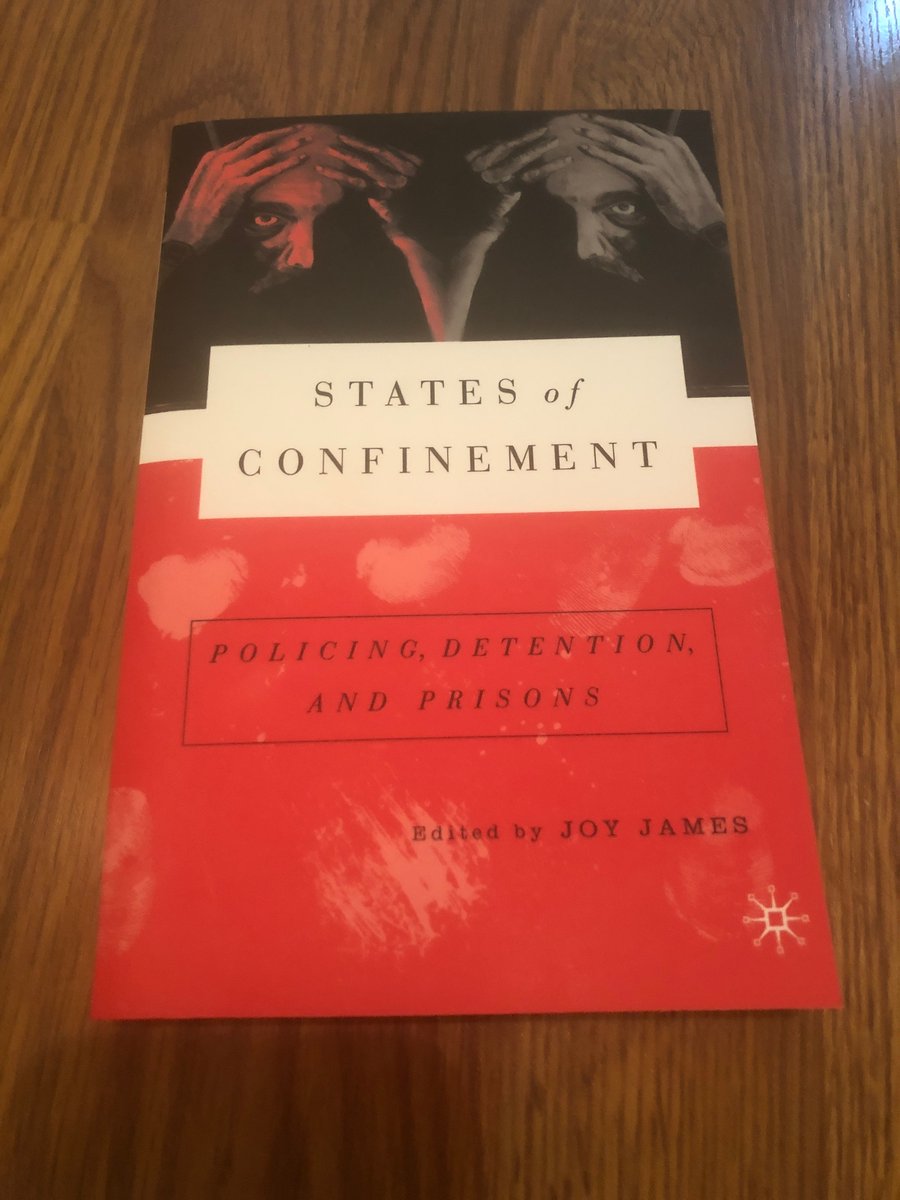This #CiteBlackWomenSunday we are sharing resources that support the struggle to preserve and protect Black life. ICYMI here& #39;s Ruth Wilson Gilmore& #39;s three part interview with @haymarketbooks on decarceration.
Covid-19, Decarceration, and Abolition (P1) https://youtu.be/lyTOspzD1ZQ ">https://youtu.be/lyTOspzD1...
Covid-19, Decarceration, and Abolition (P1) https://youtu.be/lyTOspzD1ZQ ">https://youtu.be/lyTOspzD1...
The Marshall Project (@MarashallProj) has curated news reports on police abolition. You can find it here: https://www.themarshallproject.org/records/3382-police-abolition">https://www.themarshallproject.org/records/3...
If you do not already, follow @prisonculture, who has been a critical voice in organizing for abolition. http://www.usprisonculture.com/blog/ ">https://www.usprisonculture.com/blog/&quo...
More resources on police abolition from The Chicago Reader: https://www.chicagoreader.com/chicago/the-reader-guide-to-understanding-police-abolition/Content?oid=80272747">https://www.chicagoreader.com/chicago/t...
. @C_Resistance has been an important voice of this struggle for quite some time. Their resource on abolishing policing is invaluable. Check it out here: http://criticalresistance.org/abolish-policing/">https://criticalresistance.org/abolish-p...
One conversation that has been conspicuously absent during this moment of national outcry has been the topic of the vulnerability of trans and gender non-binary folk. We cannot end police violence without addressing our entire community: https://thefeministwire.com/2014/05/no-one-is-disposable-dean-spade-reina-gossett-cece-mcdonald-discuss-prison-abolition/">https://thefeministwire.com/2014/05/n...
Angela Davis has been one of the most outspoken Black feminist voices on abolition. Here she is discussing the topic in a 2014 interview: https://www.democracynow.org/2014/3/6/angela_davis_on_prison_abolition_the">https://www.democracynow.org/2014/3/6/...
This interview with Ruth Gilmore compliments the one that we posted at the beginning of this thread. Here she speaks specifically on prison abolition. https://www.nytimes.com/2019/04/17/magazine/prison-abolition-ruth-wilson-gilmore.html">https://www.nytimes.com/2019/04/1...
Black feminism is the midwife of the abolition movement. For this reason, we also think it& #39;s important to include the work of The Combahee River Collective on this thread. @KeeangaYamahtta& #39;s How We Get Free maps the genealogy of their work and its philosophy.
Here is an invaluable resource from @AAIHS, their Prison Abolition Syllabus 2.0. Especially if you are new to this topic, and hoping to #CiteBlackWomen in your teaching and writing, this resource is key. https://www.aaihs.org/prison-abolition-syllabus-2-0/">https://www.aaihs.org/prison-ab...
It& #39;s critical to recognize the transnational dimensions of policing/incarceration (twin projects) in our abolition work. Abolition cannot ignore the global politics of policing/incarceration. Julia Chinyere Oparah& #39;s (formerly Julia Sudbury) Global Lockdown is a classic read.
Read @dreanyc123& #39;s Invisible No More (2017) to get a better understanding of the impact of violent policing (Ritchie reminds us is a misnomer...policing is always violent) on women and girls in the United States.
In this same spirit, follow @AAPolicyForum and the crucial work that they do in the #SayHerName campaign. They fight to raise awareness of the impact of policing on women and girls, especially reminding us of those who have been killed by the police. https://aapf.org/sayhernamereport">https://aapf.org/sayhernam...
Returning to the question of transnational abolition, @policingblack& #39;s Policing Black Lives examines police brutality against Black women and girls in Canada, reminding us that this is NOT an issue confined to the United States.
Continuing the conversation on transnational dimensions, @profsassy& #39;s Afro-Paradise deconstructs anti-black police terror in Brazil, showing the transnational dimensions of racial profiling and police lethality. https://www.press.uillinois.edu/books/catalog/59mec2dt9780252039935.html">https://www.press.uillinois.edu/books/cat...
Immigration is an important aspect of the abolition debate. We @citeblackwomen are particularly concerned with the ways that Black immigrants are disproportionately impacted by detention policies. Edwidge Danticat is a critical voice on this: https://www.newyorker.com/magazine/2020/04/13/ripple-effects">https://www.newyorker.com/magazine/...
Jemima Pierre& #39;s work on Haitian imprisonment in immigration detention also adds added dimensions to the discussion of prison abolition. We often omit the black experience from these discussions. Here& #39;s why we shouldn& #39;t : https://boomcalifornia.com/2017/12/25/black-life-in-adelanto/">https://boomcalifornia.com/2017/12/2...
Looping back to the U.S: Another classic text that is a part of our core syllabus on abolition is the edited volume States of Confinement by Joy James
Finally, Beth Ritchie& #39;s Arrested Justice peals back the perverse layers of the impact of the U.S. prison system on Black women. Policing, of course, is an intimate part of this.
This is in no way an exhaustive list. I& #39;m sure we& #39;ve missed important resources and references that also must be read. If you see something we& #39;ve missed, please add it to the thread! Collective knowledge leads to liberation.
We have been posting resources over the past few days for supporting the struggle to preserve Black life. We know that everyone cannot be in the streets protesting. Black women especially have care taking duties that often keep us at home.
One thing you can do from home, in addition to supporting the multiple bail funds that have been established to protect protestors& #39; rights, is educate yourself and others about the issues by reading up on them. Read Black women. #CiteBlackWomen
Not all of the resources in this list are by Black women, but the vast majority are. Resources by non-Black women are from allies who support the struggle to preserve Black life from an abolitionist perspective. I believe that all can help fortify us now.
If we are going to survive this crisis, and live to see a better world, we must integrate Black women into our core syllabus. That means we must read Black women& #39;s work, and let it shift our paradigms. https://www.citeblackwomencollective.org/our-praxis.html ">https://www.citeblackwomencollective.org/our-praxi...
If you are new to #CiteBlackWomen, then please take a minute to look at our principles (in the link in the tweet above). We have a set of 5 core beliefs that drive our philosophy. We also believe that those beliefs can help us stay grounded in difficult times like these.
Amplify Black women& #39;s efforts. Find the local organizers in your area and support them in the ways that NEED (rather than the ways that make you feel useful). Listen first. Speak later. Seek to serve not lead.

 Read on Twitter
Read on Twitter








